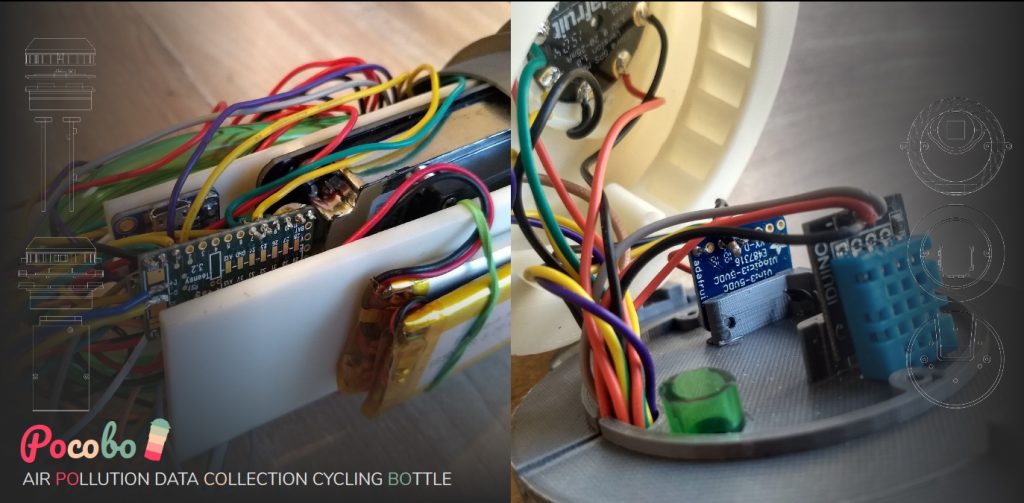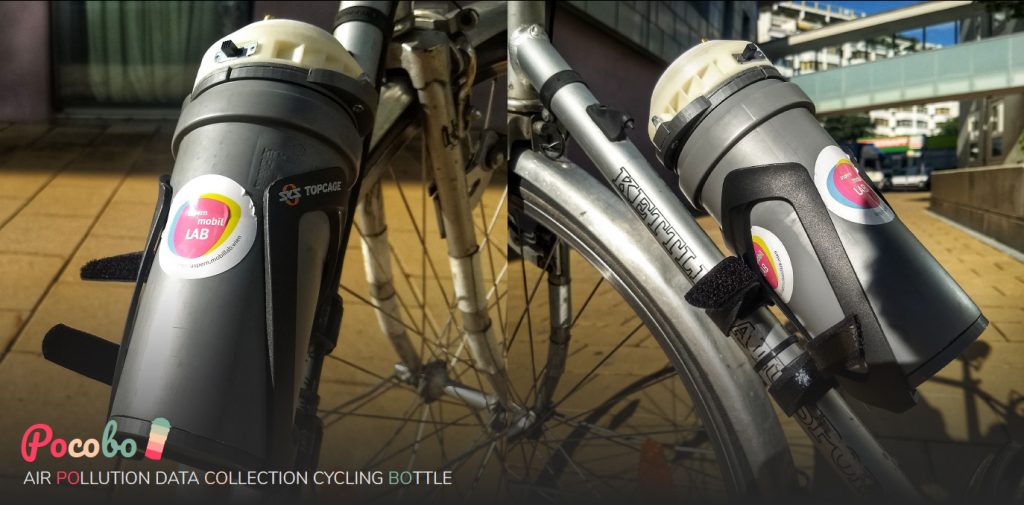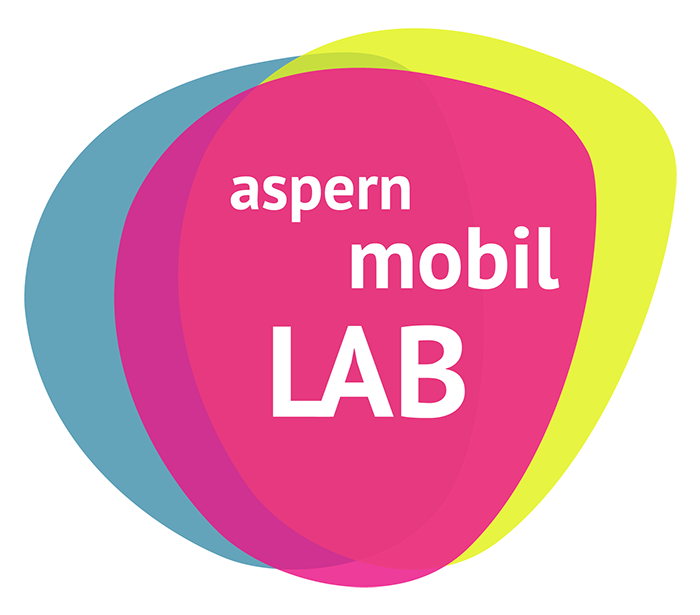Pocobo
Air Pollution Data Collection Cycling Bottle
While the necessary reduction of greenhouse gasses is a key objective of the European Union’s climate strategy [1], there is a variety of strategies to achieve these goals. Personal transport by fossil fuel powered automobiles is responsible for a host of adverse effects on the environment as well as human health according to the WHO [2]. Our approach to this field is to increase awareness among urban residents, through motivating cyclists to capture local air pollution data while riding through the city.
Therefore, device was developed, which can be easily mounted on a bicycle and collects several kinds of air-pollution values such as CO2, VOCs, as well as the amount of particulate matter. The device further includes a GPS-Tracker and an outgoing connection to a cellular network to send the data to a server for further processing. This bicycle mounted mobile air quality probe functions as a proof of concept to explore the opportunities and pitfalls of mobile air pollution data collection as a citizen science project.

The design process of our device followed the principles of user centred design where the continuous collaboration with potential users is the key factor. In each design step users were asked to co-design the appearance of the artefact itself as well as the interaction with the device and connected online services.
The physical probe was designed to fit into a regular bike mounted bottle cage – an idea, that was brought up by one of the users interviewed in the first design phase. This design decision allows for universal mountability on most, if not all, kinds of bicycle frames, since many bikes are pre equipped with bottle cages or do at least provide mounting holes for installing one. Even if there are no prepared mounting holes, aftermarket solutions give cyclists the opportunity to add a bottle cage basically anywhere on their frame. By using the placement of the drinking bottle, which is a concept that has been used for decades, it is relatively easy to ensure that the device does not get into the way of the cyclists. The bottle cage also allows for stable attachment as well easy removal of the device. Both of which were uttered by the participating users in the interviews as requirements.

The GPS based collection of air pollution data through a crowd of many urban cyclists eventually will allow to visualize this data in various forms. For example, the information can be made publicly available via a digital city map that shows the degree of air pollution in an area at a given point in time. Or the data could be used to make estimations about the impact of air pollution on an average cyclist when following their daily routine. We hope to raise the importance of the topic in the perception of the general public which might lead to a change people’s approach to their personal mobility.
Contact aspern.mobil LAB:
Name: Dipl.Ing. Gerfried Mikusch
E-mail: gerfried.mikusch@mobillab.wien
Tel: (+43 1) 588011 93410
Project contact:
Name: Lukas Pichlhöfer
E-mail: lukas.pichlhoefer@gmail.com
Technische Universität Wien
Fakultät für Informatik
Further information:
[1] Laborstunde Pocobo-Testfahrt
[2] Popup Pocobo bei der Velocity-Konferenz
[3] https://ec.europa.eu/clima/citizens/eu_de
[4] https://www.who.int/air-pollution/news-and-events/how-air-pollution-is-destroying-our-health







